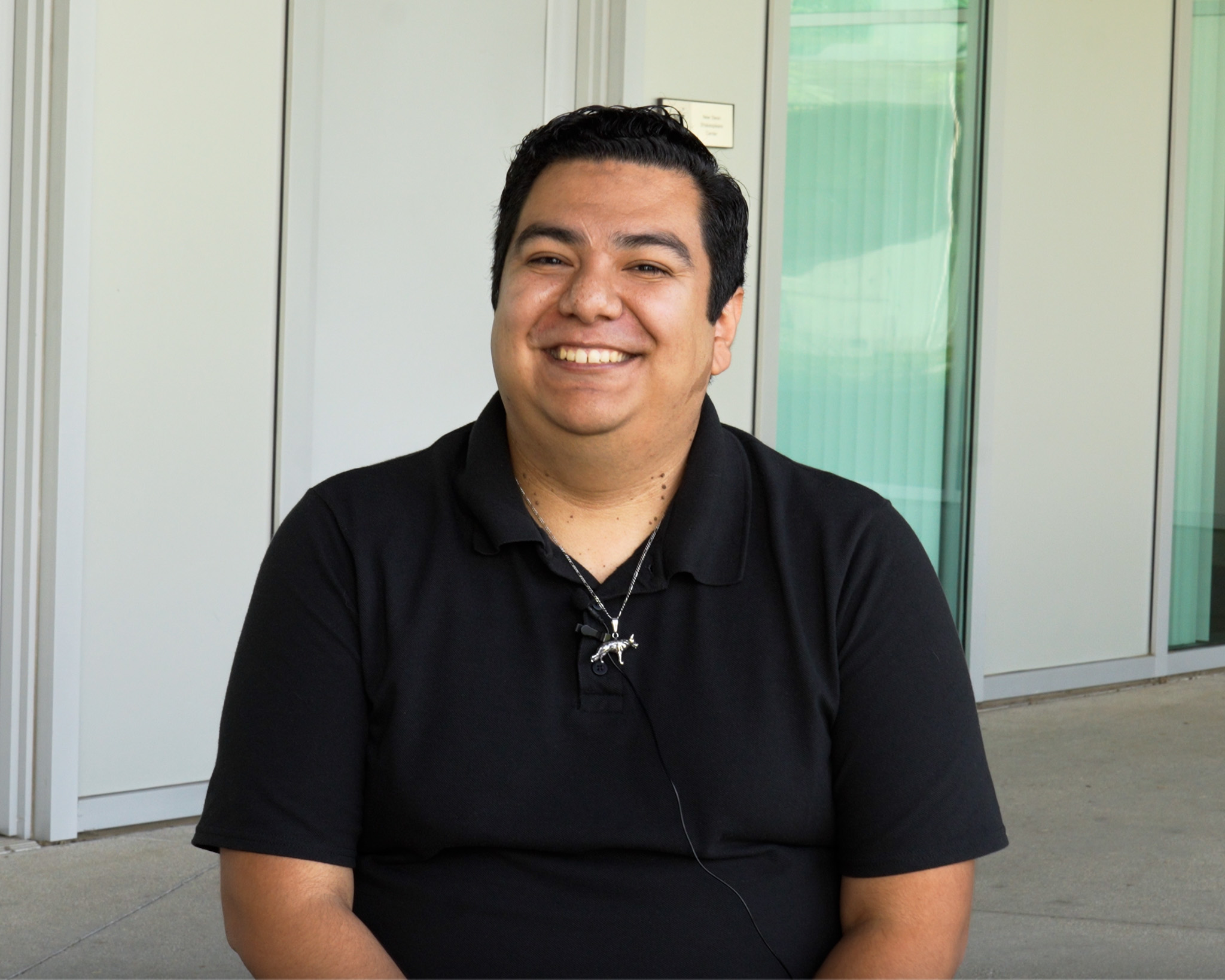Ramses Seferino Trigo Torres, PhD candidate in Biomedical Engineering
Ramses Seferino Trigo Torres is a PhD candidate at UC Irvine and is from Mexicali, Baja California, Mexico.
“My focus in zebrafish research lies in electrophysiology and surgical areas, specifically targeting cardiac disease studies and drug screening,” Torres said. “My ultimate goal is to revolutionize the medical industry by developing top-notch medical devices that can significantly enhance the lives of patients and healthcare professionals. I am deeply passionate about product development and exploring novel ways to bridge the gap between the US and Mexico in overcoming binational challenges.”
The following interview has been lightly edited for brevity and clarity.
What are some family heritage and how it has impacted you?
Since I was born on the border, I was exposed to the US culture a lot, besides my Mexican culture. So we tend to have like a mixture of this culture, but we try to still have like all this heritage. We mostly focus on the family values.
So for me, the value, is more on being together and helping each other, you know, like being there for everyone. Being the strong support, you know.
What are some family traditions that you have?
There are several traditions back in Mexico. We don’t usually celebrate them as much. We mostly focus on three dates. So it’s basically Day of the Dead, which is coming in November. The next one will be Christmas and probably New Year’s.
I know that for most people, New Year’s is not family related, but for my family is the day that my whole family get together. We have these unspoken agreements that Christmas is for your nuclear family, meaning parents and siblings, brother, whatever. And then on New Year’s, everyone comes together. So it’s pretty nice, at least on my standpoint. It’s pretty nice because I get to see a lot of my relatives that I don’t see them like as much as I would like to.
Who are your role models?
My parents are basically my heroes. They were first generation for both of my families, like on my dad’s family. He was the first one to get a bachelor’s degree, same thing for my mother. My dad is is the only son, he was born in Jalisco, Guadalajara.
My grandfather sent him to my hometown, to the border, alone for him to study because he knew. He told him, “like, if you stay here, you won’t do more. You will stay here doing agriculture. You need to be someone else. You need to grow and do better. So he was sent alone and he stayed most of his life alone .until he met my mother.
In my mother’s case, she is the youngest of four brothers. They (the four brothers), sacrificed their studies so she can go to the university, they paid for her school.”You will not be a blacksmith.” My family owns (a blacksmith). My mother is a blacksmith. They told her like “no, you need to study. You need to be someone, (you need to be the next step, the evolution.”
So both of my parents were in that situation and they raised us with that. They gave us all opportunities that they could and even if they couldn’t, they found a way to do it. So that’s it for role models, I guess. My parents are the best for me. Both of them, I have learned different things from both.
What is your favorite meal that you and your family make?
I think it will be tamales because it’s something I don’t eat like most part of the year, it is something I leave just for the end of the year. It is the reward of the hard work from all the year.
Like I’m just expecting that day to come in, like I’m just expecting for New Year’s because I want tamales. I want tamales made by my own hands, you know, they’re really tasty.
You get all the all the things, we do have other things like there’s this specific kind of BBQ plate not BBQ the U.S. version, is just the same name but in Spanish but is, how do you say, some kind of stew. It can be of a cow or of sheep. We actually do it as well.
Again, my family is, is from the, you know, from the camp, from the ranch. So we actually can raise the animals. So we do all the process. We don’t buy just from the market. We do process everything ourselves.
So that’s the really interesting part of my traditions that we actually keep.
We kind of evolved going into the city, you know, like studying, having a profession and everything and just going out from the agricultural side. But we still keep that up. I mean, that’s something that my parents gave to me and that’s something that I expect to give to my own children as well.


